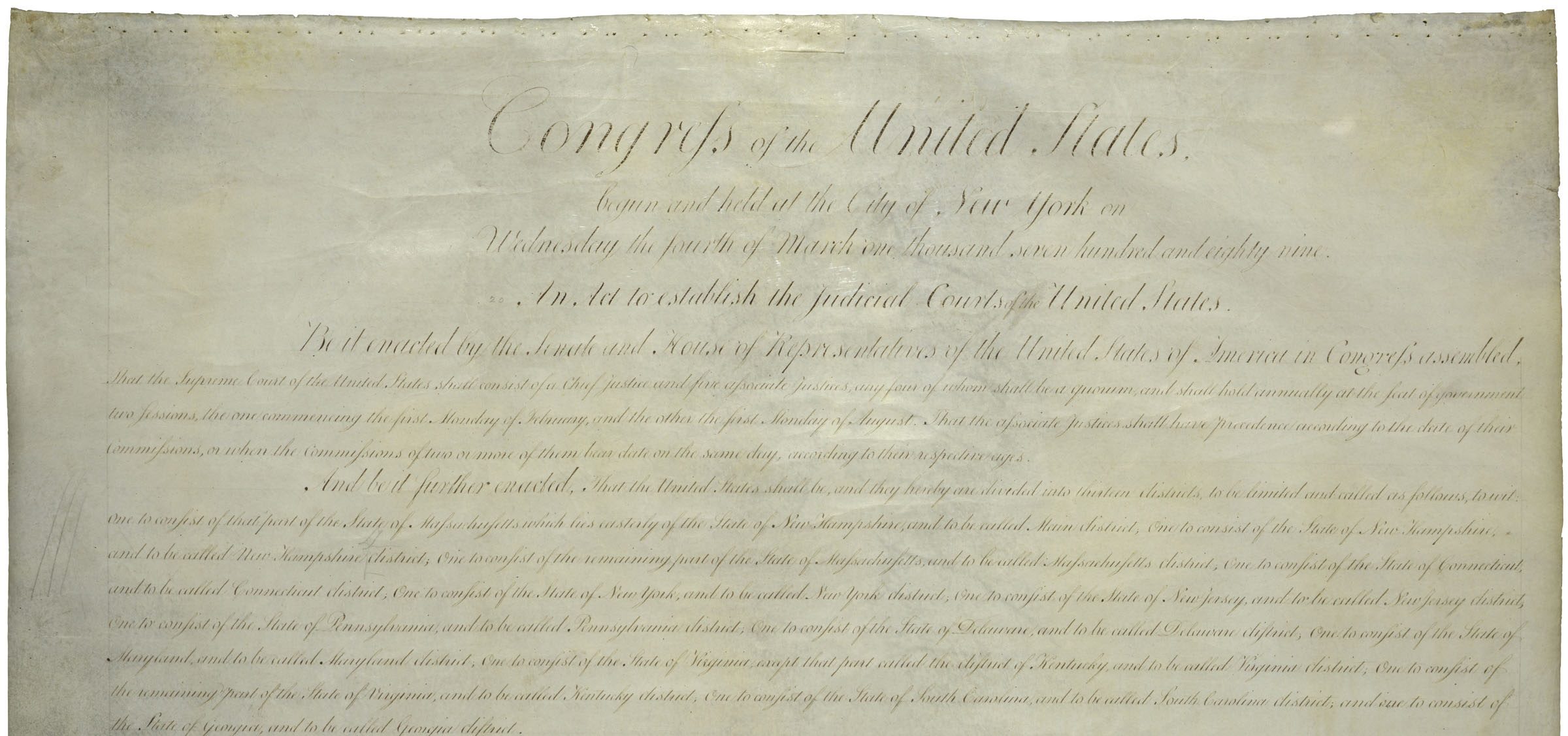In United States v. Donziger, No. 21-2486 (2d Cir. June 23, 2022), a 2-1 panel majority turns back constitutional challenges to the district court’s power under the Appointments Clause, U.S. Const. art. II, § 2, cl. 2, and Fed. R. Crim. P. 42(a) to appoint special prosecutors in a criminal contempt case.
The appeal arises from the long-running matter of disbarred New York lawyer Steven Donziger. “In 2014, the United States District Court for the Southern District of New York found that Donziger . . . had engaged in fraud and racketeering activity in order to obtain an $8.646 billion judgment against Chevron Corporation in Ecuador.” The district court entered a $813,602.71 judgment against Donziger and permanently enjoined him from enforcing the Ecuadorian judgment. In post-trial proceedings, Donziger subsequently failed timely to abide several discovery orders and was subjected to civil contempt remedies.
“On July 31, 2019, after several more months of Donziger’s noncompliance with court orders, the district court issued an order to show cause why he should not be held in criminal contempt in violation of 18 U.S.C. § 401(3). Counts 1–3 charged Donziger with failure to comply with the Forensic Protocol Order and the order to surrender his passports, and counts 4–6 charged him with violating the permanent injunctions. The court referred Donziger’s prosecution to the U.S. Attorney for the Southern District of New York, who ‘respectfully decline[d] on the ground that the matter would require resources that we do not readily have available’ . . . . The court thus appointed private counsel as special prosecutors under Rule 42(a)(2).” Donziger was convicted by the court and sentenced to six months’ imprisonment.
The panel majority affirms the conviction. The defendant challenged the district court’s constitutional authority and its exercise of discretion for its appointment of private prosecutors to pursue the contempt case.
The panel first holds (and the dissent agrees) that special prosecutors are “officers” within the scope of the Appointments Clause – despite the positions being temporary – finding that the post meets the three factors generally recognized as establishing an office: “(1) the position is not personal to a particular individual; (2) the position is not transient or fleeting; and (3) the duties of the position are more than incidental.” The panel majority found that (1) “the individuals appointed as special prosecutors could be replaced without the duties of the positions terminating”; (2) the special counsel had persisted for three years, scarcely “transient or fleeting”; and (3) “prosecution generally is a core power of government.”
The defendant argued special prosecutors were not valid under the Appointments Clause because they were because “inferior officers who lacked supervision by a principal officer.” Yet the panel majority holds that “the special prosecutors here are inferior officers appointed by ‘the Courts of Law’ under Rule 42. . . and subject to the supervision of the Attorney General of the United States, a principal officer. The statutory scheme in Chapter 31 of Title 28 gives the Attorney General broad authority to conduct and to supervise all litigation involving the United States. See 28 U.S.C. §§ 516, 517, 518, 519. This includes the authority to supervise—and if necessary, to remove— inferior officers.”
The panel majority then declines to address the defendant’s constitutional challenge to Fed. R. Crim. P. 42(a), finding that the argument was forfeited in the district court and thus subject only to plain error review. “{I]t is not clear that the phrase ‘Congress . . . by Law’ requires bicameral approval and presentment, and that it does not encompass Rule 42, which was enacted under the Rules Enabling Act, which gives Congress an opportunity to modify or reject rules before their enactment. See 28 U.S.C. § 2074.” Moreover, the power of federal courts to appoint special prosecutors was supported directly by Young v. United States ex rel. Vuitton et Fils S.A., 481 U.S. 787 (1987), even if intervening Supreme Court decisions somewhat clouded that authority. The panel majority finally finds no abuse of discretion in appointing the special prosecutors, holding that “years of noncompliance” warranted punishment and it was “beside the point that Donziger eventually complied with most of the court orders underlying his criminal contempt conviction.”
Dissenting, Judge Menashi would hold that constitutional separation of powers is violated by a federal judge both by initiating a prosecution and selecting the prosecutors. “In our constitutional framework, ‘the Executive Branch has exclusive authority and absolute discretion to decide whether to prosecute a case.’ United States v. Nixon, 418 U.S. 683, 693 (1974). In this case, however, the district court made that decision by appointing its own prosecutors. Moreover, any officer exercising the executive power—as all parties now acknowledge the special prosecutors to be—must be appointed consistent with the Appointments Clause. That clause requires appointment by the President and confirmation by the Senate unless “Congress … by Law” vests the appointment of certain inferior officers in the courts, the heads of the departments, or the President alone. U.S. CONST. art. II, § 2, cl. 2. In this case, the district court appointed the special prosecutors, but Congress never authorized it to do so.”
